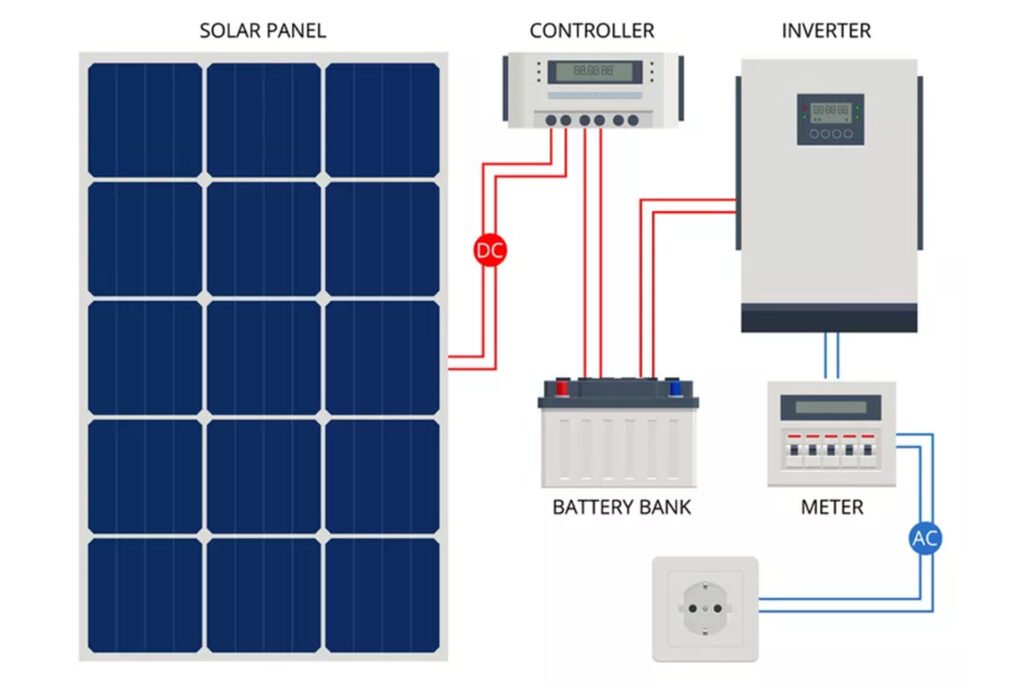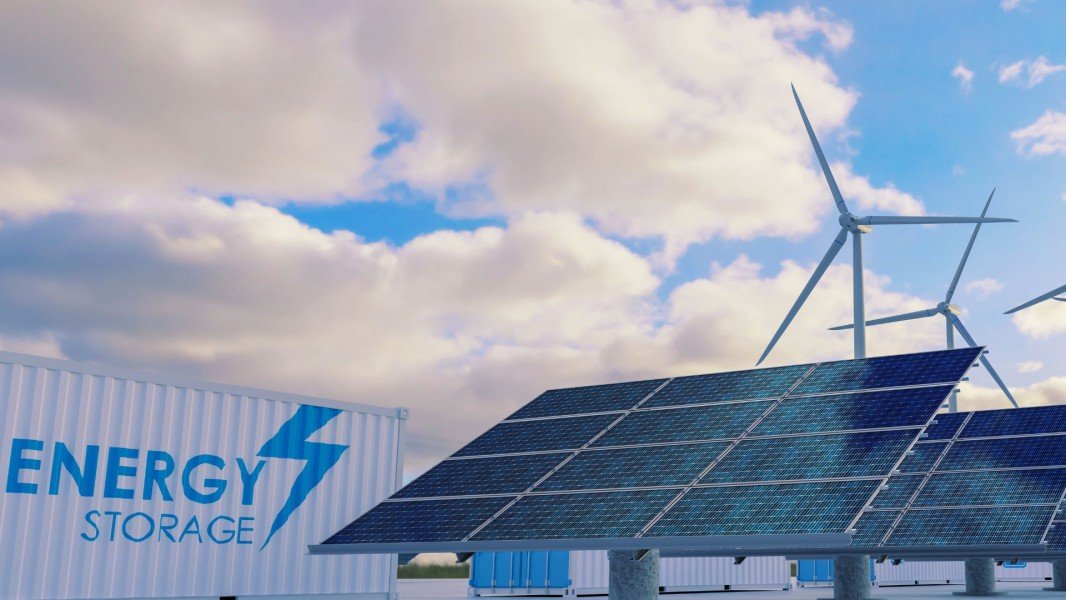
Pairing batteries with solar panels removes the greatest challenge to the widespread adoption of solar energy: its variability. Moreover, the time of day when demand for electricity is at its highest is also usually around when the sun sets. Solar panels are at their most productive at midday, when demand for electricity is low.
Most solar system owners use the grid as their battery: when they produce more electricity than they consume, their panels send the excess to the grid. In most states, their utility company gives them credit for that excess electricity through a net metering program. The credit is then applied to the pay for the excess electricity that homeowners use when they consume more than they produce.
When integrated with battery storage, solar panels can send the electricity they generate to the house, out to the grid, or into the battery storage device. Part of that process involves one or more inverters, which convert electricity from alternating current (AC) to direct current (DC), or vice versa.
For new installations, where solar panels are installed at the same time as the battery, only one inverter is needed—to convert the DC electricity coming from the solar panels either for use in the house to send it to the grid, both of which run on AC. Batteries store energy in DC directly from the solar panels. For houses that already have solar panels but are adding storage, the system already has an inverter that converts DC electricity to AC, so a second inverter is needed to turn the AC back into the DC so that it can be stored in the battery—a process that’s less efficient.
Can You Save Money With a Solar Battery Storage System?
Historically, diesel generators have been used as a backup energy source in case of power outages. A diesel generator can have a $2,000-6,000 purchase price, depending mostly on their power output. Adding in installation and fuel costs, that number can rise to between $10,000 and $20,000. If homeowners are lucky, most of the purchase price of a diesel generator will merely buy peace of mind and the generator will never have to be used.
While the upfront costs of a solar+storage system are significantly higher, depending on the size of the system, the return on investment is greater. A solar-tied battery backup can buy more than peace of mind: it can save homeowners money and generate revenue.
Different electricity providers have different rate structures: some charge a flat rate per kilowatt-hour consumed; others charge a surplus for high demand customers; still others have time-of-use plans, where electricity is cheaper during off-peak hours. Solar+storage systems can take advantage of any of these rate structures by reducing demand for grid electricity, including during periods of high demand, or store energy from the grid when it is cheapest and draw on the battery when grid electricity is most expensive.
Given these factors, for commercial and industrial customers who have high-demand charges, an analysis by the Rocky Mountain Institute (RMI) found that solar+storage can result in cost savings. For residential customers, an earlier (2015) RMI study predicted that in many parts of the United States, solar+storage systems would be cost-effective by 2025 to 2030. As costs for both solar systems and lithium-ion batteries continue to plummet, however, the cost-benefit equation for residential customers is changing faster than anyone expected.






